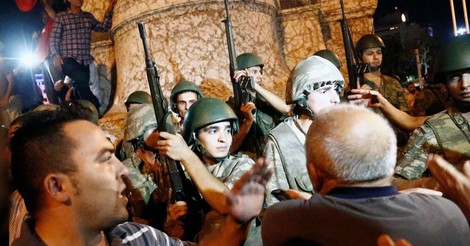Your podcast discovery platform
Curious minds select the most fascinating podcasts from around the world. Discover hand-piqd audio recommendations on your favorite topics.

piqer for: Global finds Globalization and politics Technology and society
Turkish journalist, blogger and media expert. Writes regular columns for The Arab Weekly and contributes to Süddeutsche Zeitung, El Pais and the Guardian. An European Press Prize Laureate for 'excellence in journalism' in 2014, Baydar was awarded the prestigious 'Journalistenpreis' in Germany by Südosteuropa Foundation in February 2018.
Turkey A Year After: A Coup Attempt Still Wrapped In Mystery
Nearly a year has passed since the sudden military uprising which shattered Turkey on the night of July 15 last summer, before it imploded. Despite the length of time, there are still major questions about the background and the amateurish choreography of the attempt.
Although there is little doubt that officers allegedly branded as Gülenists - followers of a reclusive Turkish cleric based in the US - and a number of Kemalists - those devoted to the founder of the republic - were involved, nobody can argue convincingly who "pushed the button", and there are no explanations over whether or not the uprising could have been prevented.
At least 249 civilians were killed as they tried to block the military vehicles. The morning after, an unknown number of conscripts - foot soldiers - were lynched by the angry crowds.
Consequences were enormous. Nearly a half the top brass - 267 generals out of a total of 348 - remain in detention, along with 4,000 others. The backbone of the Turkish army is broken. After the declaration of emergency rule, an immense purge has swept through Turkey. More than 160,000 public employees were fired. Around 40,000 of them are behind bars. Academia and media were tarnished. About 166 journalists and 13 MPs have been arrested. More than 8,000 scholars have been dismissed. Property with an estimated value of $40 billion was arbitrarily seized. Government trustees in more than 48 mainly Kurdish municipalities were appointed."In the process, Turkey was transformed. It has become a republic of fear. In most instances, individuals who have been detained have yet to see a judge. An arrest has, therefore, become a prison sentence."
Here, Henri J. Barkey, an American academic, explains what lies beneath the chain of events, offering an extremely bleak picture of the future of Turkey.

Source: Henri J Barkey, International Relations at Lehigh University Image: Sedat Suna / EPA thenational.ae